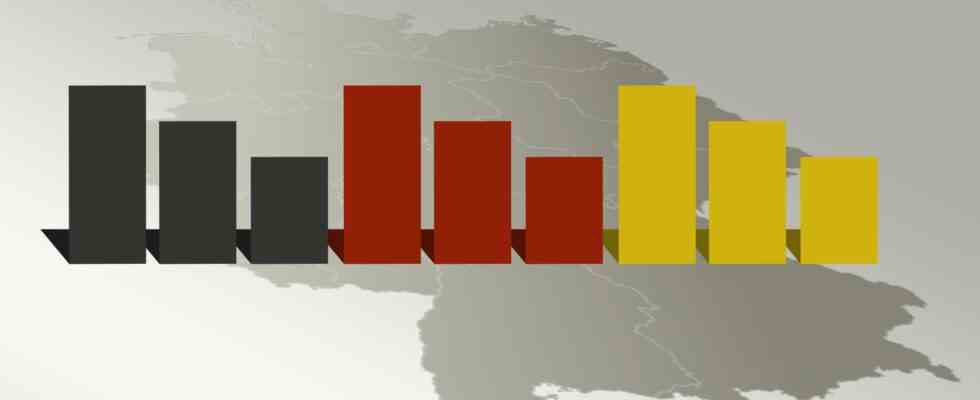Status: 08/19/2022 00:00
Faced with rising prices have noisy ARD Germany trend many citizens started to restrict themselves. 70 percent try to use less energy. Low-income households in particular are shrinking.
Many citizens in Germany have already changed their consumer behavior in view of rising prices. According to that Germany trend in the ARD morning magazine According to their own statements, seven out of ten respondents (70 percent) have started to reduce their energy consumption. That is again more than in April of this year, when it was 64 percent.
Less restaurant and cinema visits
Almost half of those surveyed (47 percent) stated that they shop less in everyday life. At 50 percent, the proportion of those who are more economical in their leisure time and, for example, visit restaurants, cinemas and leisure facilities less frequently, is even higher. 43 percent also stated that they would limit their vacation trips this year.
Because of higher prices I buy less.
Especially low-income households save
While there are no major differences between the income groups when it comes to reducing energy consumption, the respective incomes are noticeable when it comes to shopping and leisure activities – here, in particular, less financially strong households cut back.
Around two thirds (66 percent) of those surveyed with a rather low income (household income up to 1500 euros per month) stated that they shop less in everyday life. 67 percent said they visit restaurants, cinemas and leisure facilities less often. This year, 59 percent will limit their holiday trips here. In comparison, only about half of those surveyed from middle-income households (household income of 1500 to 3500 euros per month) do this.
Because of high energy prices, I reduce my consumption.
Union still strongest, Greens ahead of SPD
This time there is hardly any movement on the Sunday question – only the SPD has one percentage point more than two weeks ago, the AfD loses one percentage point. If there were a federal election on Sunday, the CDU/CSU would receive 28 percent of the vote. The Greens would be the second strongest force with 23 percent. The SPD would remain behind the Greens with 18 percent, and 12 percent would opt for the AfD. The FDP would get 7 percent, the left 4 percent of the vote.
investigation facility
Universe: Eligible voters in Germany
Collection method: Random telephone and online survey
Survey period: August 16-17, 2022
number of cases: 1273 respondents (833 telephone interviews and 440 online interviews)
Weighting: according to sociodemographic characteristics and recollection of voting behavior; Sunday question with separate weighting
fluctuation range: 2 percentage points for a share value of 10 percent
3 percentage points for a share value of 50 percent
Implementing institute: infratest dimap
Results are rounded to whole percentages to avoid false expectations of precision. Because for all representative surveys, fluctuation ranges must be taken into account. In the case of a survey with 1000 respondents, these amount to around three percentage points for large parties and around one point for smaller parties. In addition, the rounding error is significant for small parties. For these reasons, no party below three percent is shown in the Sunday question.

